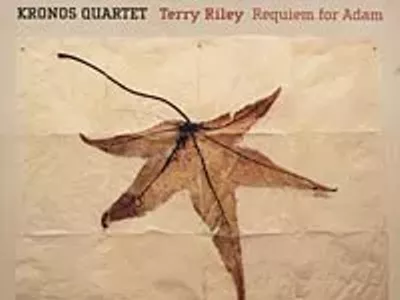Malachi Thompson
Talking Horns
Delmark

Fred Anderson
On the Run
Delmark

Fred Anderson Quartet
Dark Days
Unheard Music Series - Atavistic

Sitting in the car and something fresh comes on the radio. Hmmm. So I take it as my personal Down Beat blindfold test. Sounds a little like mid- and late-’70s Art Ensemble of Chicago, that period when they used records like Fanfare for the Warriors and Nice Guys to flaunt how well they could channel their adventurous inclinations and, in the space of a tune, barrel into something close to a song form with a limber sense of fun. But, no .... the voices, the instrumentation aren’t right. It must be that recent Malachi Thompson record that I’ve been hearing about, I say to myself. And it is. And on repeated listening, it proves to be one of the releases of the year.
Trumpeter Thompson has come up with a high-powered and concise statement of that unique avant-garde that first blew out of St. Louis and Chicago in the late 1960s, heralded by Roscoe Mitchell’s vinyl manifesto Sound and Lester Bowie’s motto: Great Black Music!
True, the breadth of the movement defies easy summation on any record; that was true back at the time of Nice Guys, and as the original musicians have continued to grow, and as waves of musicians have joined in, the difficulties have grown exponentially. It’s a movement that now includes George Lewis’ duets with computer programs and Wadada Leo Smith’s collaborations with Zimbabwe’s Thomas Mapfumo. But there’re some classic strategies involved, and Thompson and company know them well: Evoke what might go down around a village fire in the motherland; change up the abstract truths with some blues; feel free to preach a little; take it out and scream in space, but circle back and roar in the groove too. And while any of these notions might otherwise stretch on for the length of a whole record, the conceit here is to keep things short; make that statement in 10 minutes or less and move on. And given the title, it’s not surprising that, despite excellent contributions from the Chicago rhythm section (drummer Reggie Nicholson, pianist Willie Pickens and bassist Harrison Bankhead), this is first and foremost a record about the horn section. Thompson rounds it out with two St. Louis contemporaries: alto saxophonist Oliver Lake and baritone saxophonist Hamiet Bluiett, both of whom contribute as composers as well.
Concise isn’t a word that one would apply to Fred Anderson, like Thompson, a stalwart of the Association for the Advancement of Creative Musicians. Even though a central AACM idea was to give composing a higher profile amid all the blowing of the post-Coltrane jazz world, Anderson favors fairly minimal setups with seemingly boundless opportunities for free play; Thompson’s record sounds positively baroque next to either On the Run or Dark Day. That may be why Anderson had such a low profile for so long; it’s only been the last seven or so years that he’s amassed a critical mass of recordings for consideration, these two being sound additions.
Recorded live at his South Side Chicago club, the Velvet Lounge, these sets come off like telepathic trio jams between the tenor flamethrower, drummer Hamid Drake and bassist Tatsu Aoki. To note only one highlight, “Smooth Velvet,” where Anderson guides us through 12 minutes of ticking tension, then for seven minutes blasts off into a madly rushing groove, then finally, slowly cools and winds down with a two-note joke of a riff.
Recent releases like these raise the question of where Fred Anderson has been all these years. Dark Day fills in some of the mystery, combining a long out-of-print 1979 recording made in Chicago with a heretofore-unreleased recording made a few days later in Verona, Italy. The themes may have been stated more obviously back then, and there are shifts and changes over the years as well, but this release makes the overwhelming case that Anderson has long been a volcano of talent.

Find more great recordings to grab and wrap this season, including a DIY Detroit garage-rock box set, Rhino's comprehensive collections of American black music ("wonderfully balanced ... a timeless gift"), '70s soul ("a six-disc trip through the funkiest era in American music") and Graham Central Station ("chicken soup for the soul"). Metro Times' arts editor also reports on the year's very best classical recordings. There's something for everyone!
W. Kim Heron is Metro Times' managing editor; if something sounds fresh to his ears, it's got to be pretty darn good. E-mail him at [email protected].





